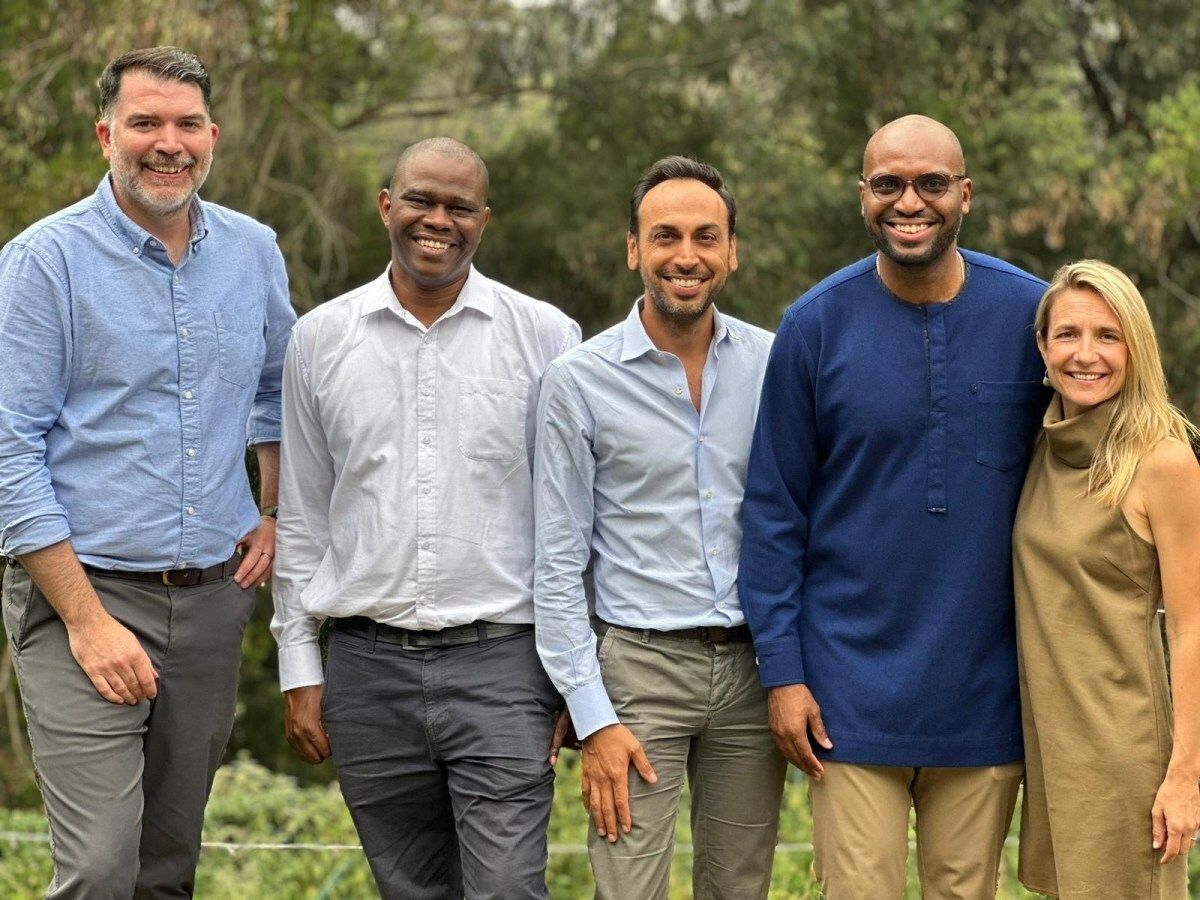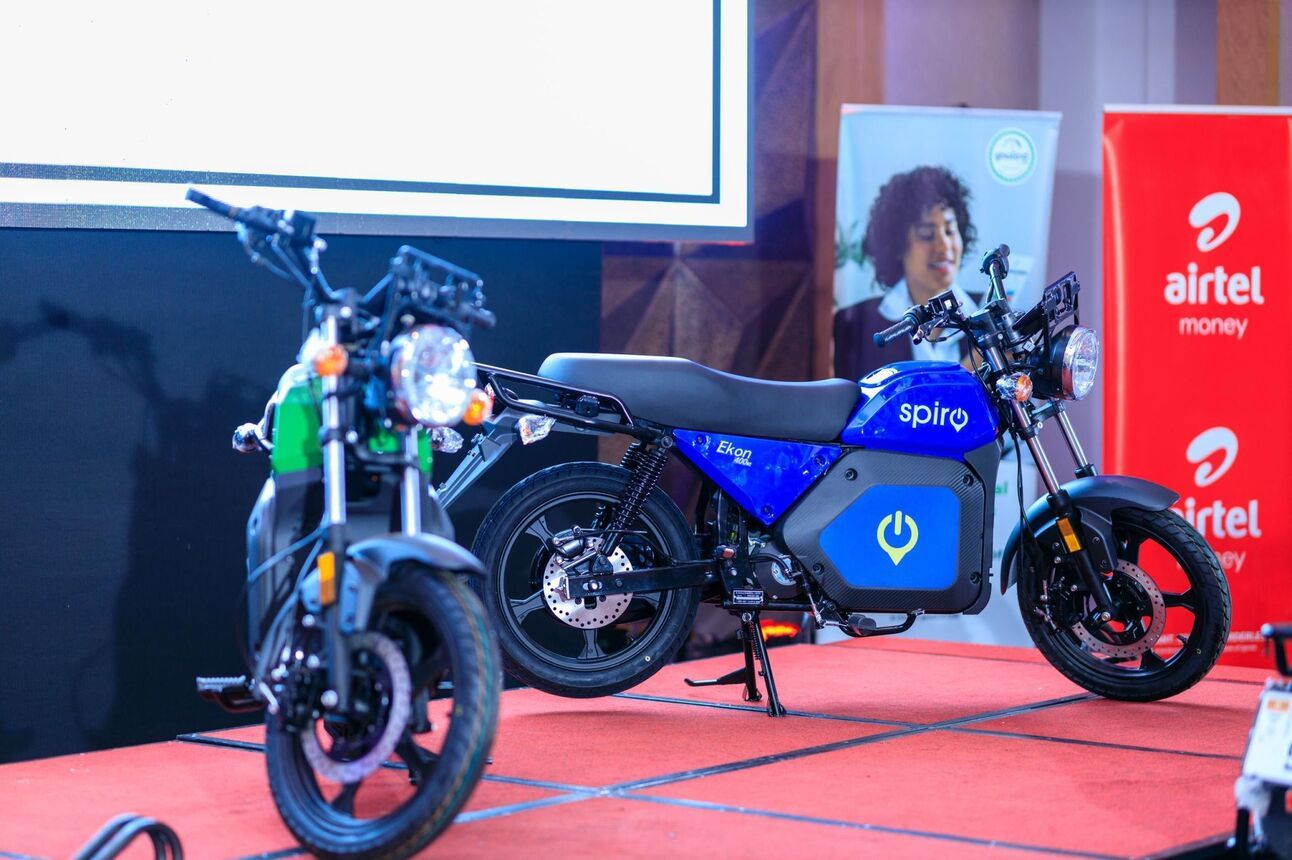- ClimateOS Africa.
- Posts
- Issue #4. TLDR:EQUATOR’S $55M CLIMATE TECH FUND
Issue #4. TLDR:EQUATOR’S $55M CLIMATE TECH FUND
African venture capital firm Equator has raised $55 million for its first fund, aiming to back climate tech startups in their early stages.
🌍 Climate OS: TLDR – Issue #4
"Your weekly dose of Africa’s climate and mobility news, served with a side of wit and a dash of hope. Let’s dive in!"
🔥 TODAY’S HOT TAKES
Here’s what’s brewing in Africa’s climate and mobility space this week:
Equator’s $55M Climate Tech Fund: Bridging the funding gap for African startups.
Ethiopia to Host Africa E-Mobility Week 2025: Addis Ababa becomes the epicenter of sustainable transport.
Uganda’s Electric Revolution: Spiro’s 600,000 shs e-bike is transforming mobility.
Uganda’s First Government EV Charging Station: A milestone in the country’s e-mobility journey.
Rising Temperatures & Male Fertility: How heat is impacting sperm quality.
🚀 THE BIG STORY: EQUATOR’S $55M CLIMATE TECH FUND

African venture capital firm Equator has raised $55 million for its first fund, aiming to back climate tech startups in their early stages. This comes at a critical time when African startups face a tough funding landscape, relying heavily on development finance institutions (DFIs) and global capital flows.
Why It Matters:
Climate tech startups in Africa require more capital than traditional tech startups, and Equator’s fund aims to bridge this gap.
The fund will invest in 15-18 startups, with checks ranging from 750,000 to 2 million, focusing on energy, agriculture, and mobility sectors.
The Bigger Picture:
Equator’s backers include DFIs like British International Investment (BII) and Proparco, as well as foundations like the Global Energy Alliance for People and Planet.
The firm’s managing partner, Nijhad Jamal, emphasizes the shift from impact-focused investments to scalable ventures with clear economic value.
The Takeaway:
Equator is not just funding startups—it’s building an ecosystem to attract global private capital and drive Africa’s climate tech revolution.
⚡ ETHIOPIA TO HOST AFRICA E-MOBILITY WEEK 2025
Ethiopia has been chosen to host Africa E-Mobility Week 2025 (AEW2025) in Addis Ababa from September 16-18, 2025. This landmark event, organized by the Africa E-Mobility Alliance (AfEMA) and the Ethiopian Ministry of Transport and Logistics, aims to accelerate the continent’s transition to sustainable transport.
Why It’s a Big Deal:
Ethiopia has already made bold strides in clean energy and transport, including banning fossil fuel vehicle imports and investing in EV infrastructure.
The event will feature the Africa E-Mobility Forum & EV Expo, a Youth Summit, and Africa’s largest EV Parade, showcasing the future of sustainable mobility.
The Bottom Line:
AEW2025 is more than a conference—it’s a movement to unite stakeholders, foster innovation, and drive Africa’s e-mobility transformation.
🚲 UGANDA’S ELECTRIC REVOLUTION: SPIRO’S SHS 600,000 E-BIKE

Spiro Uganda has launched an affordable electric motorcycle with an initial payment of just 600,000 Ugandan shillings (about $160). This initiative, backed by Airtel Money Uganda and Centenary Bank, is set to revolutionize mobility in a country where motorcycles dominate 51% of the transport sector.
Why It Matters:
Spiro has already rolled out over 22,000 electric bikes across Africa, with 1,500 in Uganda since June 2024.
The e-bike can reach speeds of 85 km/h and cover 100 km on a single charge, with flexible payment plans making it accessible to more Ugandans.
The Bigger Picture:
Spiro plans to open a high-tech motorcycle plant in Uganda by July 2025, positioning the country as a hub for e-mobility innovation.
The shift to electric bikes could significantly reduce greenhouse gas emissions in a country heavily reliant on fossil fuels.
The Takeaway:
Spiro’s e-bike isn’t just a mode of transport—it’s a ticket to a cleaner, greener, and more prosperous future for Uganda.
🔌 UGANDA’S FIRST GOVERNMENT EV CHARGING STATION
Uganda’s Ministry of Energy and Mineral Development will launch the country’s first government-owned EV charging station on March 12, 2025. This milestone follows a similar initiative by NCBA Uganda, which introduced a Hyundai Kona EV into its fleet earlier this year.
Why It’s Important:
The launch marks a significant step in Uganda’s e-mobility journey. It complements private sector efforts like Spiro’s e-bike rollout.
It signals the government’s commitment to reducing reliance on fossil fuels and promoting sustainable transport.
The Bottom Line:
Uganda is charging ahead (pun intended) in the race to electrify its roads, and this is just the beginning.
🌡️ RISING TEMPERATURES & MALE FERTILITY
Rising temperatures are uncomfortable and impact male fertility. A recent study in China found that extreme heat and cold can reduce sperm quality, with potential implications for global fertility rates.
Why It Matters:
The study analyzed nearly 79,000 semen samples and found that excessive heat negatively affects sperm concentration and motility.
While there’s no Africa-specific study yet, similar trends could emerge as temperatures rise across the continent.
The Bigger Picture:
Climate change’s impact on reproductive health is an understudied but critical issue.
Experts recommend minimizing heat exposure and maintaining a healthy lifestyle to protect sperm health.
The Takeaway:
Gentlemen, it’s time to rethink how heat affects you—beyond just sweating through your shirt.
🍵 MEME OF THE DAY

My sperm count in this heatwave: ‘I’m just a puddle now
"Enjoying ClimateOS: TLDR? Share it with a friend and help us grow! 🚀"
This edition of Climate OS: TLDR keeps you informed, entertained, and ready to tackle the week. Let’s keep it green! 🌍✨